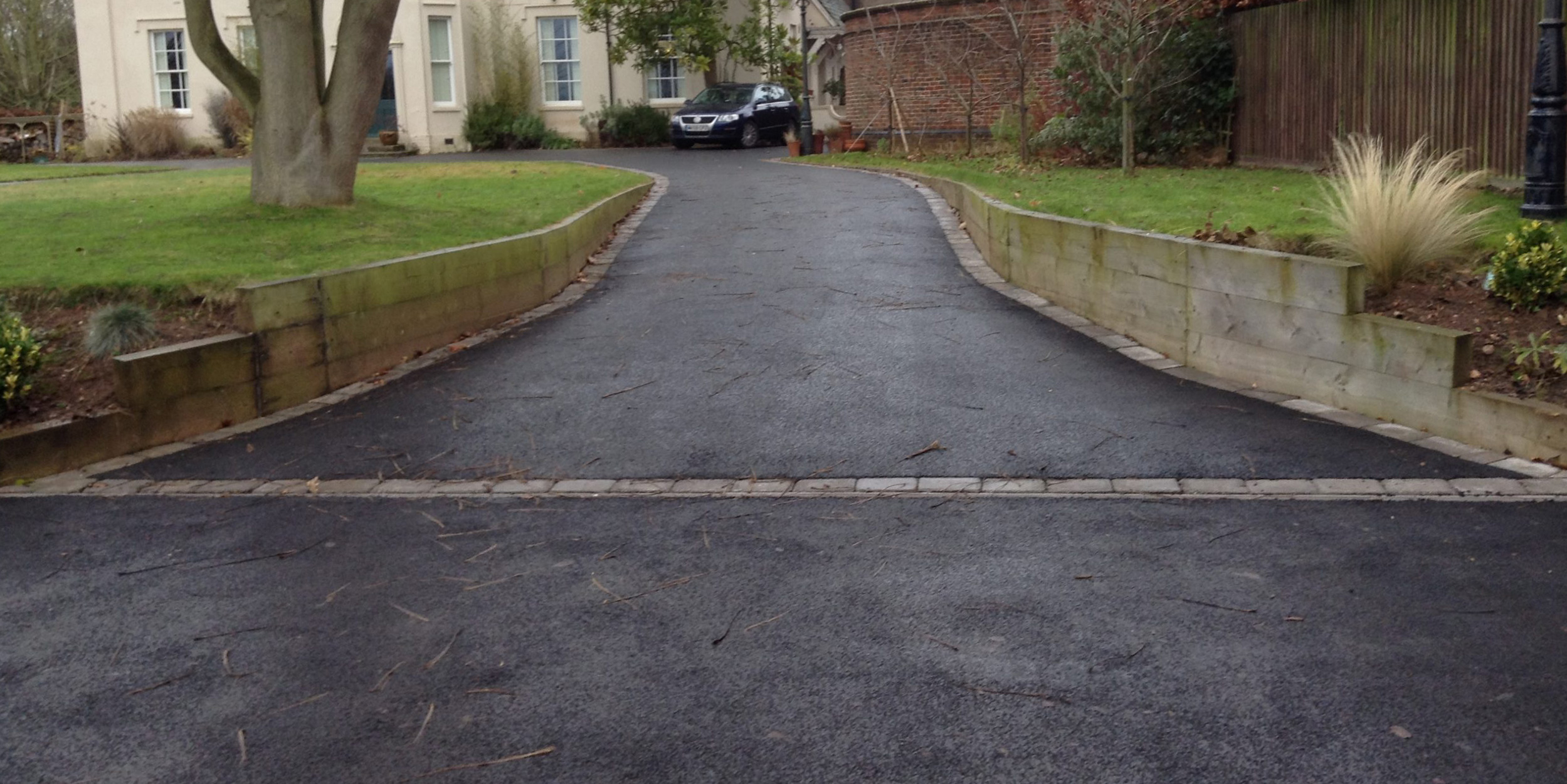You have made an investment to improve the entrance to your home. While as soon as the paving work was completed, everything seemed perfect, over the years the look of new asphalt has disapeared and cracks go from one side to the other of your driveway.
So you begin to evaluate a plan of attack, revive, partially repair or replace your entire driveway. Asphalt driveways are relatively easy and inexpensive to repair compared to other common driveway surfaces. However, repairs don’t always make the most sense.
Your driveway’s age, usage, extent of repairs needed, and your goals for the driveway will help you decide which option is right for you. Here’s what you need to know about resurfacing, replacing, and patching potholes .
When the moment to take action arrives, you wonder what your options are: replace, resurface or simply fill in the imperfections. Here is some information from these three strategies:
Patching potholes: the cheapest option
Pothole patching or patching is by far the easiest, quickest and least expensive solution. Small cracks, divots and holes are the best candidates for the asphalt patching . If the damage is less than a quarter inch wide, chances are you need nothing more than a basic liquid crack filler, such as TexNov Crack Filler, a product highly elastic and adherent acrylic polymers.
Larger cracks and holes usually represent larger damage below the surface. Fortunately, most badly cracked asphalt driveways can still be saved. Surface patching is an excellent choice for asphalt that is moderately damaged but hasn’t totally failed. A few centimeters are milled on the upper layers of the damaged place and the hole is cleaned. Then new asphalt is poured, compacted and leveled.
If the damage is more severe, digging out the patch is a great option. The entire section of defective asphalt is removed and a brand new section is installed from scratch. This is a long lasting but complex repair.
Asphalt driveway resurfacing: the happy medium
Of course, the patch isn’t always the best choice. If you have a few severe cracks and holes, or several moderate ones, it may not be cost effective or practical to fix them all. Plus, resurfacing restores structural strength, and will look like new quickly and for years to come. TexNov offers you a new component, the Pave-Tex. A roll-on acrylic coating that, in a short period of time, can extend the life of your driveway for years.
Asphalt Resurfacing Cost
Resurfacing consists of completely adding a top layer of a product that matches the asphalt in color and texture. Any necessary patching is done after thorough cleaning and sealing of cracks and holes, allowing for structural rehabilitation and the “new driveway” at a fraction of the cost of a full replacement.
Replace the asphalt driveway: start again
Although resurfacing can repair many badly damaged asphalt driveways, it is not a panacea. Some driveways have extensive damage that extends to the foundation of the driveway. Extraction patches can fix relatively small failing areas, but are not practical for larger or multiple issues.
Also, the older your driveway, the more likely it is to need replacing. Driveways are exposed to constant stress, and over time the stresses eventually take their toll. Repairing or resurfacing an asphalt driveway that is over about 20 years old will provide, at best, a temporary solution. It’s likely that new problems will develop soon after repairs are complete, leaving you in a seemingly endless cycle of damage and repair.
Replacing the driveway is like stepping back in time. Although the initial cost is more than a patch or resurfacing, it is a long term investment, do you really need it?
Maintenance of its asphalt driveway
For asphalt, as in life, prevention is better than cure! With early detection and repair of any developing cracks or holes, your new driveway could be virtually trouble-free for years. Take a few minutes to detect cracks, seal them using TexNov Crack Filler.
Weather Considerations
The timing of your repairs, resurfacings or replacements is very important. It is neither practical nor advisable to undertake major paving work during the colder months. This is because hot asphalt is affected by ambient air and ground surface temperatures. It should stay warm enough that it can be worked on long enough to complete the project, then gradually cool and harden. It is simply impossible in cold weather.
If you need further details, do not hesitate to contact us; it will be our pleasure to guide you in your steps to repair and protect your asphalt.

